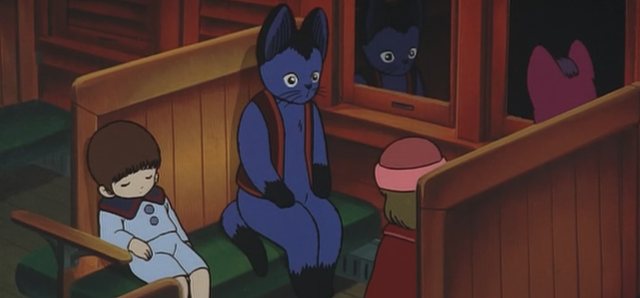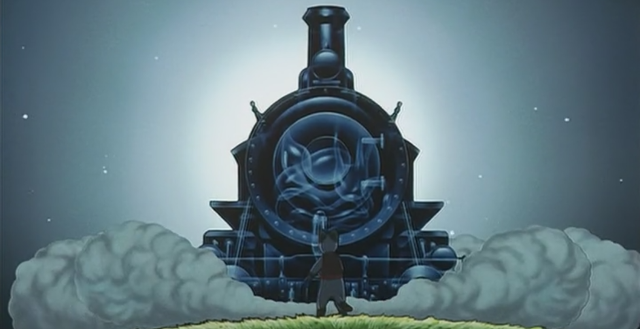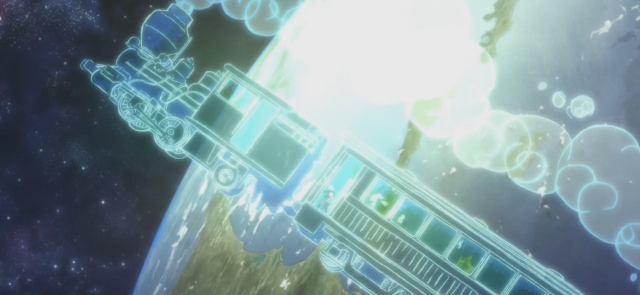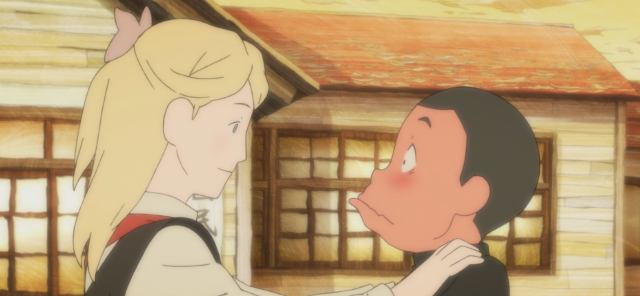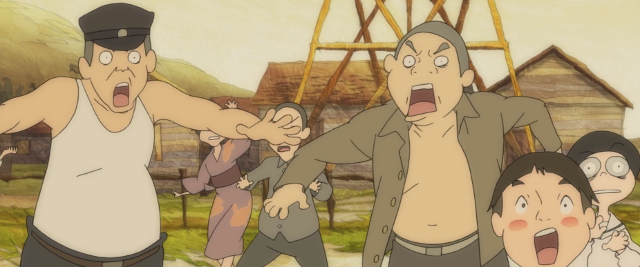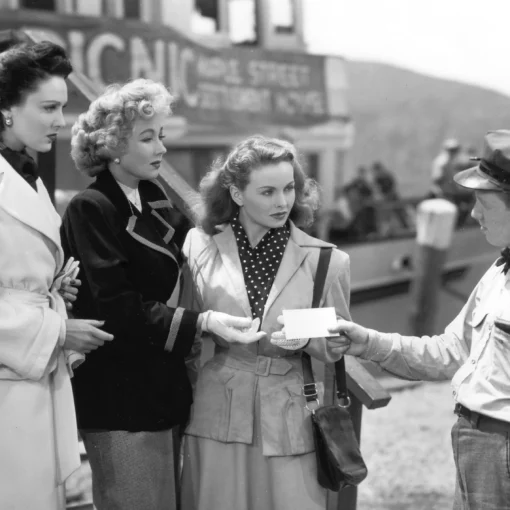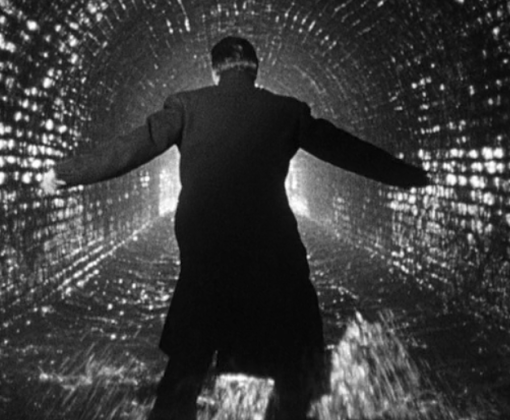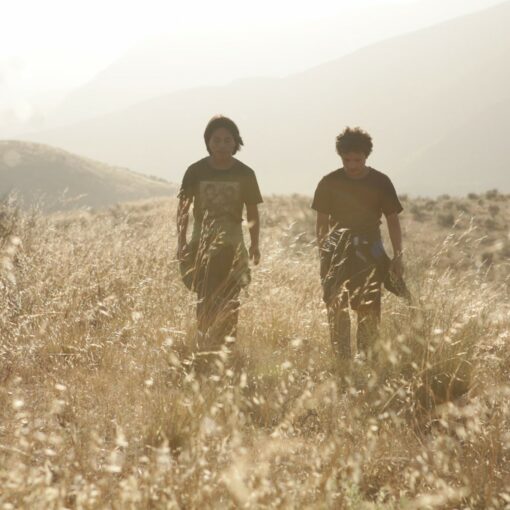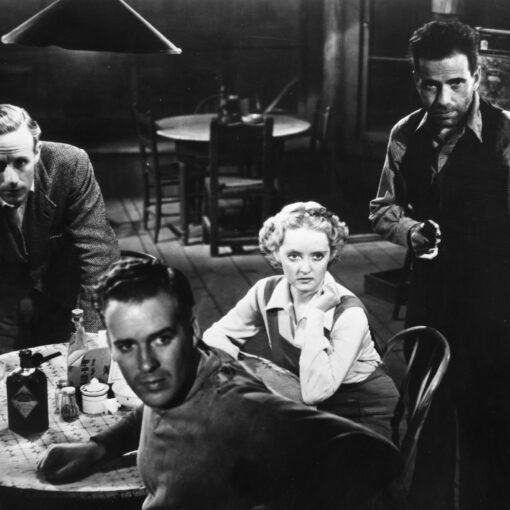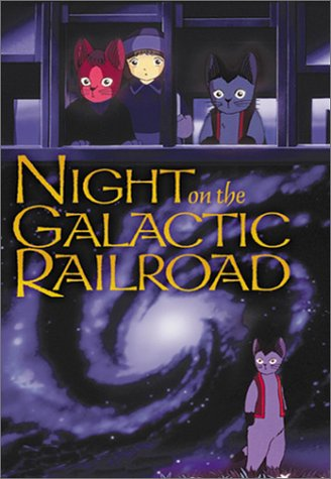 | Original title: Ginga-tetsudo no yoru |
Rating:  (4 / 5) (4 / 5) | |
| Year: 1985 | |
| Directors: Gisaburo Sugii, Arlen Tarlofsky | |
| Duration: 113 min. | |
| Genres: Animation, Fantasy, Mystery |
Kenji Miyazawa’s Night on the Galactic Express
It all starts in 1927 with a young Japanese writer, Kenji Miyazawa, writing a book called Night on the Galactic Express. Or Railroad, depending on the translation. It’s a children’s book about two boys who venture into the metaphysical world, travelling through the universe on a train riding through space, time and possibly other places as well. The writer of the very popular novel died very young in the 1930’s, but it took until 1985 for the first animated film about the it to hit the screen. It is called Kenji Miyazawa’s Night on the Galactic Express, but was never much of a success. Not surprising, because it is not an easy film to watch. I won’t go into too many details of the actual story, because I’m afraid it would give away too much.
What I can say is that the two boys in this film are actually two cats that walk and talk like humans. Gotta love the Japanese for being a little weird. The two boy’s names are Giovanni and Campanella. Those are their original names, not whatever the translator came up with. Giovanni is a loner. He has to take care of his sick mother all by himself. He does have a sister, but we never see her. Between school, working and taking care of his mother, Giovanni doesn’t have any time to do all the things kids are supposed to do. The only friend he does have is Campanella. At some point they both end up on a magical train that sets off to various ‘locations’ named after constellations, nebulae and the like.
The original book is divided into chapters, and this is also how the film works. The train stops at a number of stations. All very strange locations, and sometimes the passengers can get out to take a look around. Other characters also travel using the train. Many of the passengers enter into conversation with the two young cats. However it is very difficult to figure out what it’s all about. There is very little dialog, and most of it is quite confusing. The film itself doesn’t offer much of an answer either. At least, not until the end. The two hour run time may feel like ten to some. The filming style is very different from what you’d expect from an animated film, or even a film in general. The story progresses very slowly, which can be a bit annoying when you don’t really know what you’re looking at. But ultimately it is very rewarding to sit through.
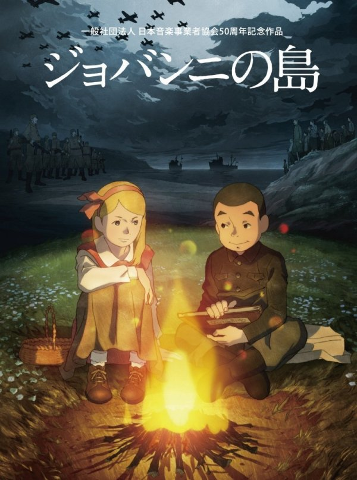 | Original title: Jobanni no shima |
Rating:  (4 / 5) (4 / 5) | |
| Year: 2014 | |
| Director: Mizuho Nishikubo | |
| Duration: 102 min. | |
| Genres: Animation, Drama, History |
Giovanni’s Island
It is also sort of fundamental to understand parts of the second film. Reading the book or watching the aforementioned film helps with understanding some of the things going on here. The second film is called Giovanni’s Island. It isn’t about flying trains or talking cats at all, but Miyazawa’s novel plays an integral part in the telling of this story. This film is actually based on true events. According to its director it is probably about 80% fact and 20% fiction. This film takes place in the late 1940’s, on a remote Japanese island. The story starts during the summer of 1945. Emperor Hirohito has surrendered, and so Japan lost the second world war. Pretty soon after, Russian soldiers take over the island. Their families come over too.
Two Japanese boys live on the island, Junpei and Kanata. They have been named after two characters from a children’s novel, Giovanni and Campanella. They have a locomotive toy and their father reads to them from Miyazawa’s book. When the Russians come they take over the boy’s house. They are forced to live in the stables. In their home now lives the Russian commander with his daughter Tanya. Since the kids all go to the same school, they inevitably end up playing together and making friends. Junpei and Tanya take an interest in each other, but pretty soon Junpei’s father is captured by the Russians. Then the whole island is evacuated and everyone is shipped off to prison camps somewhere in Russia.
What this story does well is to play your emotions. It’s a tearjerker at times, but it also has its funny moments. It reminded me of so many other great Japanese films that I don’t even know where to start. I suppose I’ll pick one and leave it at that. I’m quite sure that the singing of songs in the school – which by the way is part of the 20% fiction – is a nod to the 1956 anti-war film The Burmese Harp, where a British and Japanese battalion of soldiers sing together in the dark. They also managed to get the legendary actor Tatsuya Nakadai to lend his voice for the old Junpei. What sometimes feels a bit off is the film’s pace. Especially in the beginning it could do with a little calmness Kenji Miyazawa’s Night on the Galactic Express had so much of.

